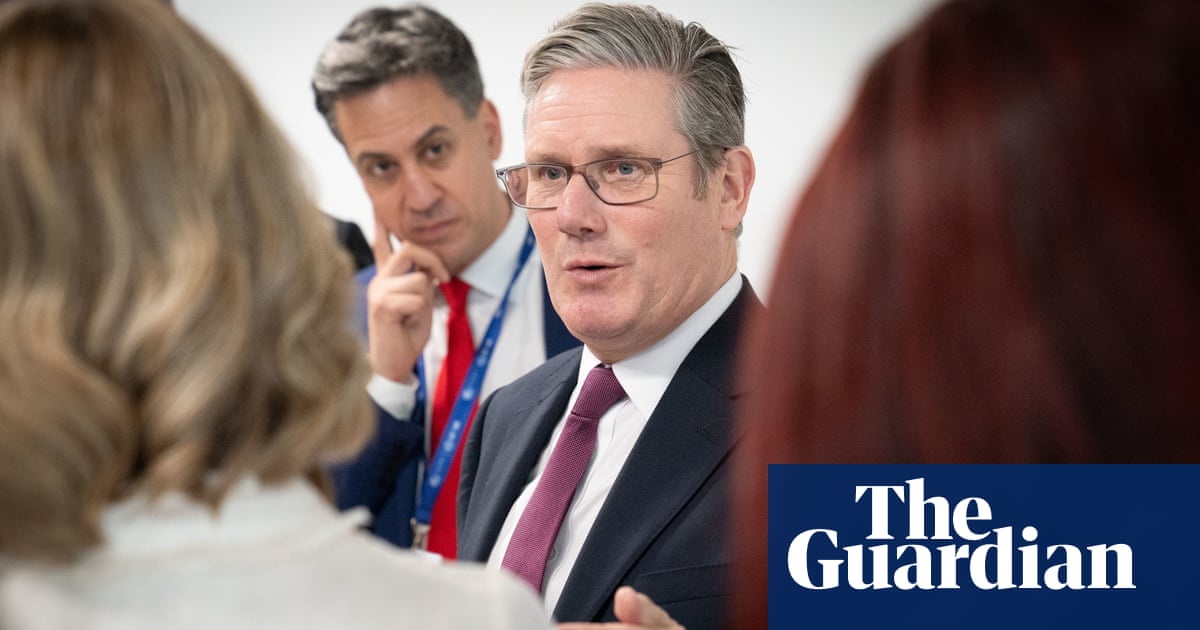
Failure to act on the promises made at the Glasgow Cop26 climate summit last year would be “an act of monstrous self-harm”, the UK’s president of the conference will warn today in Glasgow.
Alok Sharma, the cabinet minister who led the UK-hosted summit that ended with agreement to limit global heating to 1.5C, will say that Russia’s invasion of Ukraine, and rising energy and food prices, have changed the global outlook drastically in the six months since.
But responding to those changes by reneging on climate commitments would only result in worse damage, he will say. “The current crises should increase, not diminish, our determination to deliver on what we agreed here at Cop26, and honour the Glasgow climate pact,” he is expected to say. “[World leaders must show that] though the world has changed, our resolve has not.”
Sharma is returning to Glasgow on Monday to mark six months since Cop26 ended. Nearly 200 countries have agreed to develop new commitments this year to cut greenhouse gas emissions in line with the 1.5C goal, which requires roughly halving carbon levels by 2030, according to scientific advice from the Intergovernmental Panel on Climate Change.
Though Cop26 made important progress – all the world’s big economies have now committed to net-zero goals, compared with a handful before the UK took on its Cop26 role – it fell short of producing national plans, called nationally determined contributions (NDCs), that add up to the 2030 target. But countries agreed to return this year to the Cop27 conference in Egypt in November with strengthened commitments.
Sharma urged countries to “pick up the pace” and make fresh commitments in line with stark warnings from the IPCC in new reports published this spring, and after recent extreme weather such as the heatwaves that have struck India and Pakistan. “The window of time we have to act is closing fast [and] we must urgently adapt and reduce emissions, because current targets are not enough,” he will warn.
“Every country must respond to the call to revisit and strengthen their NDCs, and they must do so in 2022. The Glasgow pact calls on countries to look again at their NDCs, not at some vague point in the future, but this year, in 2022,” he will say.
Many climate experts have told the Guardian they are concerned that the war in Ukraine, soaring prices for energy and food, and governments responding by increasing fossil fuel production, are imperilling the Cop26 promises. The Guardian has also uncovered evidence of nearly 200 “carbon bombs” – oil, gas and coal mega-projects, proposed or under way – that would destroy any chance of limiting temperature rises to 1.5C above pre-industrial levels.
Experts have warned that the answer to these crises is to move much faster away from fossil fuels. Fatih Birol, executive director of the International Energy Agency, said: “I believe we have the chance to make this a historic turning point, towards a cleaner and more secure energy system.”
Failure to cut emissions will result in some of the world’s biggest cities running out of water, a report from the charity Christian Aid warned on Monday. London, Sydney, Beijing, Cairo, Cape Town and Phoenix are all in danger of running out of water as the climate crisis takes hold, according to the report, entitled Scorched Earth: the impact of drought on 10 world cities.
Friederike Otto, senior lecturer in climate science at the Grantham Institute, Imperial College London, who studied the 2018 drought in Cape Town, warned: “Changing rainfall and higher temperatures – the result of greenhouse gas emissions – are making drought more common and more severe in parts of the world. As we saw in Cape Town, this can add up to catastrophic water shortages even for some major cities.”
Nushrat Rahman Chowdhury, co-author of the Christian Aid report, said: “Drought is not new, but its intensity and frequency have increased over the last 30 years due to global warming. It is a real danger; it threatens lives and livelihoods of some of the poorest people in the world, who have done the least to cause the climate crisis.”












